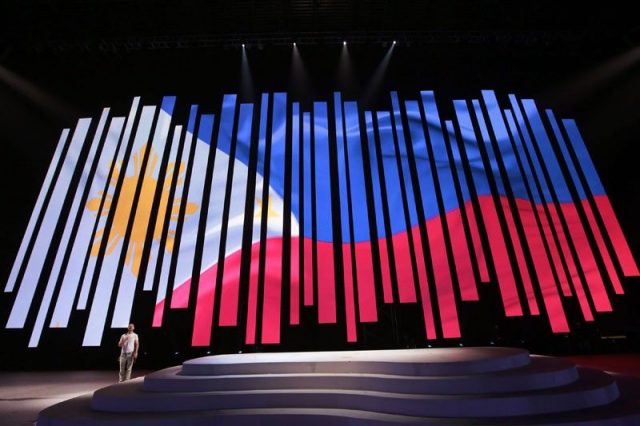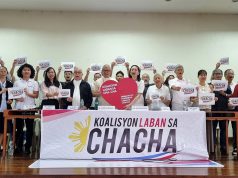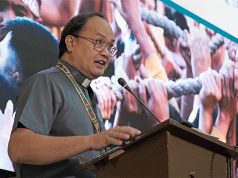
The debate on the usage of “Filipinx” to represent Filipinos was revived anew after an online dictionary added five Philippine-related terms in its database.
The terms “Filipinx,” “Pinxy,” “Pinoy,” “Filipina,” and “Pinay” were among the 650 new entries to Dictionary.com, a widely-used English language platform, in its latest update. It also made revisions to over 15,000 of its current entries.
In a statement released last September 1, Dictionary.com explained that its team implemented these big changes to adapt to the changes in language or jargon used across the world.
“Over 15,000 entries updated on topics ranging from race and sexual orientation to climate and internet culture. The unprecedented events of 2020, from the pandemic to the protests, have profoundly changed our lives—and language,” it said.
In line with the revisions, Dictionary.com also added that it is seeking to address or resolve more sensitive topics such as race, sexuality and health.
“But just as important as the new words we’ve added are the deeper revisions that document what drives us here at Dictionary.com: the ways language is constantly evolving. A great many of these entries we’ve updated address topics that touch all of us on the most personal levels: race and ethnicity, gender and sexuality, health and wellness,” it added.
Differing definition, usage of words
While such updates are well-intended, Dictionary.com’s provided definition for the following words differs with the usage in the Philippines.
- Filipinx—of or relating to natives or inhabitants of the Philippines (used in place of the masculine form Filipino or the feminine form Filipina)
- Pinxy—of or relating to natives or inhabitants of the Philippines (used in place of the masculine form Pinoy or the feminine form Pinay)
- Pinoy—of or relating to male natives or inhabitants of the Philippines
- Filipina—of or relating to female natives or inhabitants of the Philippines
- Pinay—same definition as the former
In Philippine history and as stated in the Constitution, the nationality of the citizens of the Philippines, regardless of gender identity, are called “Filipinos” or “mga Pilipino.”
These words are both indicated in the Preamble and in Article II, Section 19, wherein:
“The State shall develop a self-reliant and independent national economy effectively controlled by Filipinos.”
General knowledge English-language online encyclopaedia Britannica.com also indicated that “ethnically diverse people of the Philippines collectively are called Filipinos.”
The word “Filipino” also refers to the national language of the Philippines as stated in Article XIV, Section 6, wherein:
“The national language of the Philippines is Filipino. As it evolves, it shall be further developed and enriched on the basis of existing Philippine and other languages.”
In Filipino language, which is often interchanged with Tagalog language, there are words or honorifics used to refer male and female Filipinos such as “ate,” “kuya,” “tita” and “tito,” among others.
Filipino immigrants who use the term “Filipinx” stated that the word is adapted from the “Latinx” society to refer to people in Latin America who are also members of the LGBTQ community.
In their case, Filipinx and Pinxy are Filipino immigrants who are part of the diaspora and are members of the LGBT community.
The words “Pinoy,” “Pinay” and “Filipina,” meanwhile, are often unofficial names or adjectives foreigners used to distinguish male and female Filipinos.
What netizens are saying
Similar to the usage of “Filipinx,” most conversations on various social media platforms, including online forum Reddit Philippines still opposed to the usage of the supposed new terminologies to represent the Philippines, citing that “Filipino” is already a gender-neutral word.
Some Filipinos, as usual, resorted to express their thoughts in the form of witty posts.
filipinx amputa ang valid lang magkaroon ng "x" ay ang winx club
— satan (@ITSYABOISATANAS) September 5, 2020
what the fuck is a filipinx? a legendary pokemon?
— kurboi ☎️ (@kurb0i) September 4, 2020
Amid the criticisms, popular voice artist Inka Magnaye argued that “Filipino” may not be gender-neutral as it was supposed to be abroad.
“I guess the rise of the term ‘Filipinx’ is reflective of the wide use of “Latinx”, because even if “Filipino” is already supposed to be gender neutral, people still use the term “FilipinA” (like Latino/Latina). So personally, ‘Filipino’ isn’t as gender neutral as they think,” Magnaye said.
Twitter user @jcmlambino12 explained that there’s nothing wrong with aspiring to identify as a Filipinx. However, there should be nuance in the usage in the western countries.
“With their campaign to use “Filipinx” in the West for their “progressive” belief, they think that they are making Filipino/Tagalog more progressive and they can influence other intellectuals in the west to adopt such thinking,” the user said.
“This can potentially marginalize voices here in the Philippines, where a lot of Filipino / Tagalog native speakers live, by imposing their own standards on how our language should be, ironically ignoring the evidence that our language is already is what they want,” the user added.
Some Filipino users also decried that Filipino immigrants campaigned for new words to identify themselves with when they are perceived silent on the problems of their home country.
Filipino-Americans have the audacity to start a campaign on using Filipinx and Pinxy when they were all QUIET about the anti terror law, about activists being killed, about pride protestors being jailed, about writers and artists being jailed, about students being red tagged.
— 𝐛𝐞𝐚 𝐝𝐢𝐚𝐧𝐞 秋月 (@kacchanfilms) September 5, 2020









